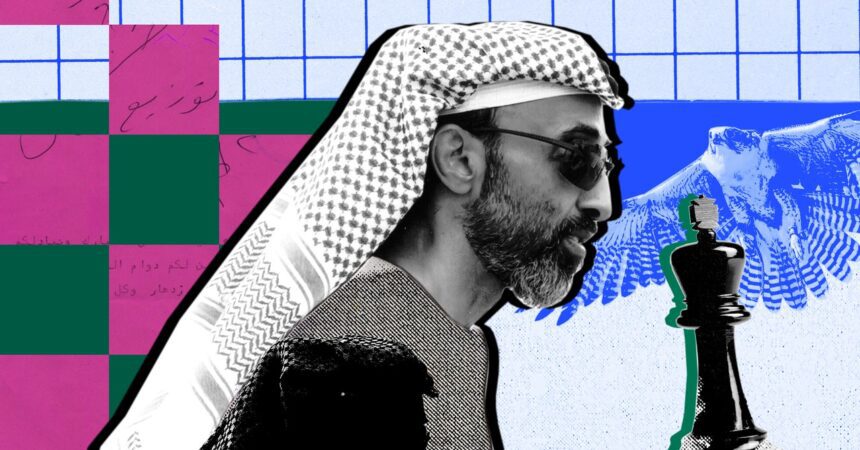The Legacy of Hydra: Chess, AI, and Sheikh Tahnoun bin Zayed al Nahyan
In the mid-2000s, the chess world was captivated by a machine known as Hydra, a refrigerator-sized supercomputer that claimed the title of the world’s greatest chess player. Built in Abu Dhabi and powered by a massive cluster of 32 processors, Hydra’s foray into the realm of chess showcased not only the prowess of artificial intelligence but also a unique intersection between technology, competition, and personal ambition.
Hydra: The "Monster Machine"
Hydra emerged during a time when humans and computer systems clashed in chess tournaments, a battleground where strategic minds met the calculating precision of machines. Hydra was unlike its rivals, which typically ran on standard personal computers. Instead, it was a sophisticated assembly of industrial-grade processors and custom-designed chips, designed specifically for the game of chess. For a brief moment, it became a quasi-mythical figure in the chess community, drawing praise and fear alike. Media outlets like The New Yorker and WIRED celebrated its capabilities, likening Hydra to a gladiatorial beast that could “slowly strangle” world-class grandmasters.
Hydra’s developer team, however, faced a paradox; as the creators of the powerful machine, they found themselves frequently unable to utilize its full capacity. The Emirati sponsor who financed Hydra’s creation and operational expenses, Sheikh Tahnoun bin Zayed al Nahyan, reveled in its success, using it to dominate online chess tournaments under the alias "zor_champ." His passion for the combination of human intellect and machine precision drove him to play incessantly against worthy opponents, and as he won, Hydra’s legend solidified.
Sheikh Tahnoun: The Man Behind the Machine
Sheikh Tahnoun, who ferried Hydra into the stratosphere of chess excellence, is a multifaceted figure in the UAE’s socio-political landscape. As the national security adviser to one of the richest nations in the world, and the younger brother of the UAE’s president, Tahnoun wields significant influence—both domestically and internationally—over the emirate’s substantial wealth, estimated at around $1.5 trillion.
Tahnoun’s reputation reflects a blend of a high-ranking royal, a tech entrepreneur, and even elements reminiscent of a cinematic supervillain. He is the founder of G42, a tech conglomerate that focuses on advanced technologies such as artificial intelligence, biotechnology, and cyber-operations. Under his leadership, G42 has emerged as a critical player on the global stage in fields ranging from AI research to state-sanctioned surveillance.
Aside from his governmental position, Sheikh Tahnoun is deeply involved in promoting health and fitness. A fitness enthusiast, he engages in Brazilian jiu-jitsu and cycling, advocating for longevity and wellness principles in his life. His interactions often require potential business partners to earn respect through physical challenges, emphasizing his active lifestyle.
Current Developments in AI and Chess
While Hydra may have been retired in the late 2000s, its legacy in the chess world lives on. Today, chess engines like Stockfish and AlphaZero have pushed the boundaries of AI in strategy games beyond anything Hydra accomplished. AlphaZero, developed by DeepMind, showcased the capacity of machine learning and neural networks, defeating Stockfish after teaching itself the game purely through self-play within a matter of hours.
The evolution from Hydra to these modern chess engines is indicative of a broader shift in AI: not merely doing tasks traditionally reserved for humans but actually learning and developing strategies on their own. The combination of machine learning and vast computational power has transformed the landscape of chess, raising questions about the future of competitive play.
Conclusion: Reflections on Technology and Human Ambition
The tale of Hydra and Sheikh Tahnoun bin Zayed al Nahyan offers insight into not just the competition between human intellect and artificial intelligence, but also the complexities such technological advancements can introduce into society. As AI systems continue to evolve, they challenge our understanding of intelligence, creativity, and even personal identity in ways we are still grappling with today.
As we reflect on the story of Hydra and its powerful patron, it’s critical to consider how we navigate the balance between innovation and moral responsibility in the age of AI. Just as chess provides a battleground for strategy and foresight, the rapidly evolving world of technology forces us to reconsider our roles as creators and users of powerful machines.










